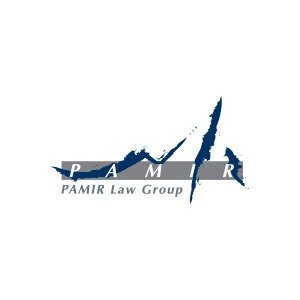Best Due Diligence Lawyers in Taiwan
Share your needs with us, get contacted by law firms.
Free. Takes 2 min.
Or refine your search by selecting a city:
List of the best lawyers in Taiwan
About Due Diligence Law in Taiwan
Due diligence in Taiwan serves as a crucial process that involves an in-depth investigation of various legal, financial, and operational aspects of a business or transaction. This comprehensive legal framework ensures that all relevant aspects of a business are examined thoroughly before making investment decisions or entering into contracts. In Taiwan, due diligence is particularly vital in mergers and acquisitions, real estate transactions, and corporate financing. The process helps to identify any potential risks and liabilities, assess the target's compliance with local laws and regulations, and provide a clear picture of the financial health of a business.
Why You May Need a Lawyer
There are several scenarios where seeking legal advice on due diligence can be beneficial. Here are some common situations:
- Mergers and Acquisitions: When acquiring or merging with another business, a lawyer can help identify legal risks and liabilities, ensuring a smooth transaction.
- Real Estate Transactions: Legal counsel is crucial for verifying the title, understanding zoning laws, and identifying environmental concerns.
- Corporate Financing: For businesses seeking investment or loans, due diligence verifies the company's financial statements and ensures compliance with regulatory requirements.
- Partnerships: Before forming partnerships or joint ventures, a lawyer ensures that terms are clear, fair, and legally binding.
- Intellectual Property: Conducting due diligence on IP assets ensures they are legally protected and owned by the business.
Local Laws Overview
Understanding the local legal landscape is crucial when conducting due diligence in Taiwan. Some of the key aspects include:
- Company Act: Governs corporate formation, operation, and governance principles critical in verifying a company’s compliance.
- Securities and Exchange Act: Essential for due diligence involving listed companies or securities, ensuring adherence to reporting and disclosure requirements.
- Labor Standards Act: Dictates employment practices; compliance is checked during corporate audits to prevent future disputes.
- Environmental Protection Laws: Influential in transactions involving potential environmental liabilities or real estate.
- Intellectual Property Laws: Validates ownership and protections, critical for companies relying on patents, trademarks, or copyrights.
Frequently Asked Questions
What is the main purpose of due diligence?
The primary purpose is to assess risks, validate information, and ensure compliance with legal standards to make informed decisions in business transactions.
How long does the due diligence process take in Taiwan?
The duration varies depending on the transaction's complexity, ranging from a few weeks to several months.
Can due diligence prevent fraud?
While it can't guarantee the prevention of fraud, due diligence significantly reduces the risks by exposing discrepancies and red flags.
What are common issues found during due diligence?
Typical issues include financial irregularities, pending legal disputes, non-compliance with laws, and undisclosed liabilities.
Who conducts due diligence?
It is usually conducted by a team of professionals including lawyers, accountants, and industry experts.
What role do lawyers play in due diligence?
Lawyers provide legal assessments, identify potential legal risks, and ensure compliance with applicable laws and regulations.
Is due diligence mandatory for all transactions?
Due diligence is not mandatory by law, but it is highly recommended for significant transactions to avoid potential pitfalls.
What documents are typically reviewed in due diligence?
This includes financial records, contracts, organizational documents, compliance records, and more.
How are due diligence findings presented?
Findings are typically synthesized into a comprehensive due diligence report that highlights key issues and recommendations.
What happens if issues are found during due diligence?
If significant issues are found, the parties may renegotiate terms, seek indemnities, or even terminate the transaction.
Additional Resources
For additional information and assistance, consider reaching out to these resources:
- Ministry of Economic Affairs (MOEA): Provides guidance on business regulations and practices in Taiwan.
- Invest Taiwan: Offers information and support for foreign investors, including legal regulations.
- Taiwan Bar Association: Can help find qualified local legal professionals specializing in due diligence.
- Chamber of Commerce: Connects businesses with resources and insight into local market practices.
Next Steps
If you conclude that legal assistance is necessary for your due diligence requirements in Taiwan, here are steps to follow:
- Identify Your Needs: Clearly outline the scope and objectives of the due diligence process relevant to your situation.
- Consult a Lawyer: Engage a lawyer with specific expertise in due diligence and relevant fields such as corporate law or real estate.
- Gather Documentation: Collect all necessary documents and records that may be required by your legal advisor.
- Conduct a Thorough Review: Work with your lawyer to assess all findings and determine implications on your transaction or business.
- Make Informed Decisions: Use the insights gained from due diligence to make well-informed decisions regarding your business dealings.
Lawzana helps you find the best lawyers and law firms in Taiwan through a curated and pre-screened list of qualified legal professionals. Our platform offers rankings and detailed profiles of attorneys and law firms, allowing you to compare based on practice areas, including Due Diligence, experience, and client feedback.
Each profile includes a description of the firm's areas of practice, client reviews, team members and partners, year of establishment, spoken languages, office locations, contact information, social media presence, and any published articles or resources. Most firms on our platform speak English and are experienced in both local and international legal matters.
Get a quote from top-rated law firms in Taiwan — quickly, securely, and without unnecessary hassle.
Disclaimer:
The information provided on this page is for general informational purposes only and does not constitute legal advice. While we strive to ensure the accuracy and relevance of the content, legal information may change over time, and interpretations of the law can vary. You should always consult with a qualified legal professional for advice specific to your situation.
We disclaim all liability for actions taken or not taken based on the content of this page. If you believe any information is incorrect or outdated, please contact us, and we will review and update it where appropriate.
Browse due diligence law firms by city in Taiwan
Refine your search by selecting a city.
















